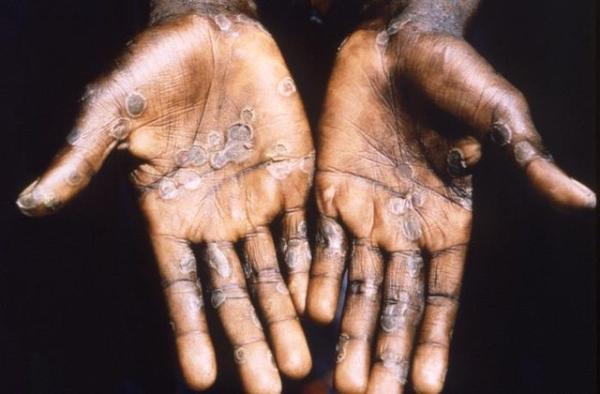The World Health Organization (WHO) on August 14 sounded the alarm about an mpox virus outbreak, declaring it a global health emergency for the second time in two years. While the initial outbreak in 2022 primarily affected gay and bisexual men, the current crisis is unfolding in a different, more alarming way.
Mpox (formerly known as monkeypox) is an infectious disease caused by the monkeypox virus. Common symptoms include a painful rash lasting for two to four weeks, which may accompany fever, headache, muscle aches, back pain, fatigue, and swollen lymph nodes. The rash, which resembles blisters, can affect the face, palms of the hands, soles of the feet, groin, genital and/or anal regions, mouth, throat, or eyes. The number of sores can range from one to thousands.
Most people fully recover, but some become seriously ill, and the infection can be fatal.
At the heart of this resurgence is a new, more virulent strain of the virus. Originating in the Democratic Republic of Congo, where mpox has been endemic for decades, this new strain has rapidly spread to neighboring countries.
More than a dozen African countries have reported mpox outbreaks this year, with more than 17,000 suspected cases across the continent since the start of 2024 and 724 confirmed deaths, according to the Africa Centers for Disease Control and Prevention. More than 96 percent of all cases and deaths have occurred in the Democratic Republic of the Congo, with many of those affected being children.
Unlike the previous outbreak, which was primarily transmitted through sexual contact, the new strain is being spread through both sexual and community transmission. It spreads by contact with infected:
- persons, through touch, kissing, or sex
- animals -- hunting, skinning, or cooking them
- materials, such as contaminated sheets, clothes, or needles
- pregnant women, who may pass the virus on to their unborn baby.
Thus, it can infect large segments of the population, posing a significant threat to public health worldwide.
Children, who are particularly vulnerable to the disease, account for a disproportionate number of fatalities. The virus's ability to spread through communities rather than just specific sub-populations has exacerbated the crisis.
The Congo has approved two mpox vaccines, a Japanese product called LC16 and Jynneos, the vaccine made by Bavarian Nordic that was used in 2022 in the United States and Europe. But Congo has not yet instituted an immunization plan.
On August 9, the WHO invited vaccine manufacturers to apply for an emergency use listing, a prerequisite for international groups to purchase and distribute the shots in low-income nations. The mpox vaccine used in the U.S. has been added to the WHO’s prequalification list, the first time one has received this designation.
Bavarian Nordic has donated 15,000 doses of Jynneos to be distributed in African countries, but according to Africa’s CDC, that is a minuscule fraction of the 10 million doses needed to control the outbreak.
The WHO's decision to declare a global health emergency is a stark reminder of the virus's potential to cause widespread harm. It is a call to action for governments, health organizations, and individuals to work together to contain the outbreak and prevent further spread. But key challenges lie ahead. The production of sufficient amounts of effective vaccines to prevent infection by this new strain is crucial. In the longer term, addressing the root causes of the outbreak, such as poverty, malnutrition, and weak healthcare systems in affected regions, will be essential for prevention.
The global community must remain vigilant; as we learned through bitter recent experience, pandemics can devastate societies and economies. While the focus in recent years has understandably been on COVID-19, we cannot afford to ignore other emerging threats. Mutations of other viruses, such as avian flu and mpox viruses, that make them more transmissible and/or more virulent are reminders that prevention – including by “flattening the curve” of infections -- is critical.
By learning from past mistakes and working together, we can prevent mpox from becoming another global catastrophe. The time to act is now.
Note: An abbreviated version of this article was previously published by European Scientist.




